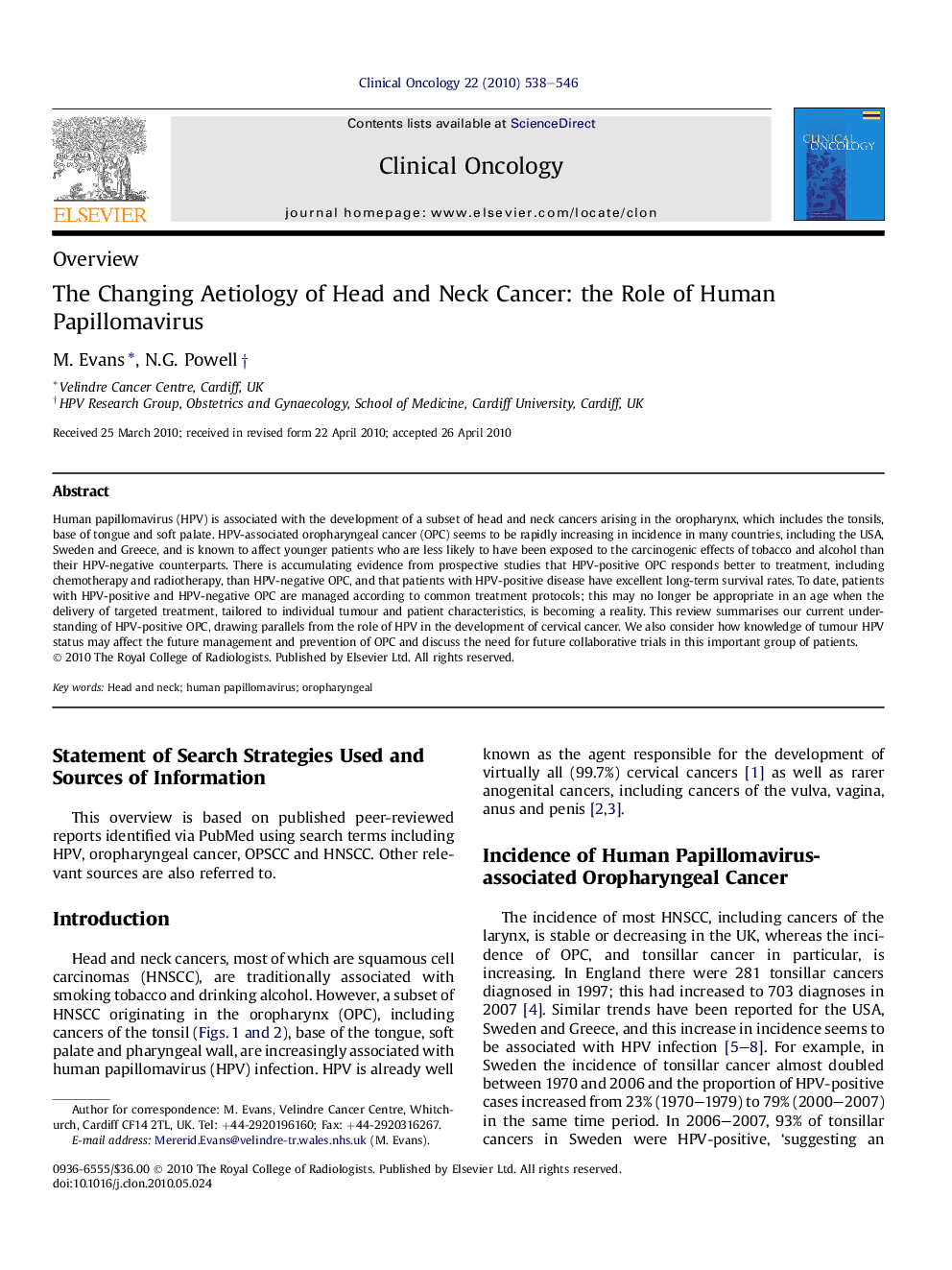| Article ID | Journal | Published Year | Pages | File Type |
|---|---|---|---|---|
| 5699309 | Clinical Oncology | 2010 | 9 Pages |
Abstract
Human papillomavirus (HPV) is associated with the development of a subset of head and neck cancers arising in the oropharynx, which includes the tonsils, base of tongue and soft palate. HPV-associated oropharyngeal cancer (OPC) seems to be rapidly increasing in incidence in many countries, including the USA, Sweden and Greece, and is known to affect younger patients who are less likely to have been exposed to the carcinogenic effects of tobacco and alcohol than their HPV-negative counterparts. There is accumulating evidence from prospective studies that HPV-positive OPC responds better to treatment, including chemotherapy and radiotherapy, than HPV-negative OPC, and that patients with HPV-positive disease have excellent long-term survival rates. To date, patients with HPV-positive and HPV-negative OPC are managed according to common treatment protocols; this may no longer be appropriate in an age when the delivery of targeted treatment, tailored to individual tumour and patient characteristics, is becoming a reality. This review summarises our current understanding of HPV-positive OPC, drawing parallels from the role of HPV in the development of cervical cancer. We also consider how knowledge of tumour HPV status may affect the future management and prevention of OPC and discuss the need for future collaborative trials in this important group of patients.
Related Topics
Health Sciences
Medicine and Dentistry
Oncology
Authors
M. Evans, N.G. Powell,
